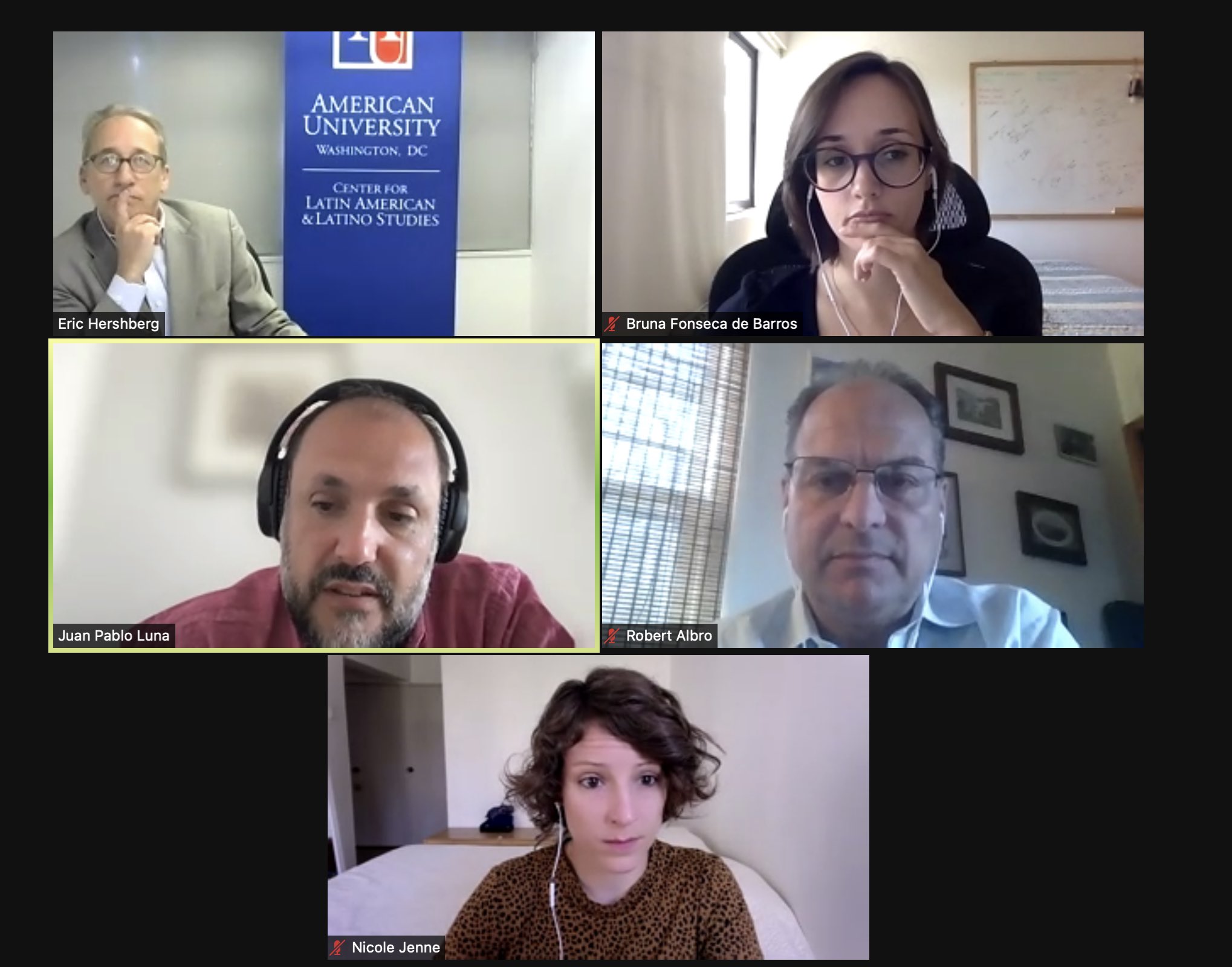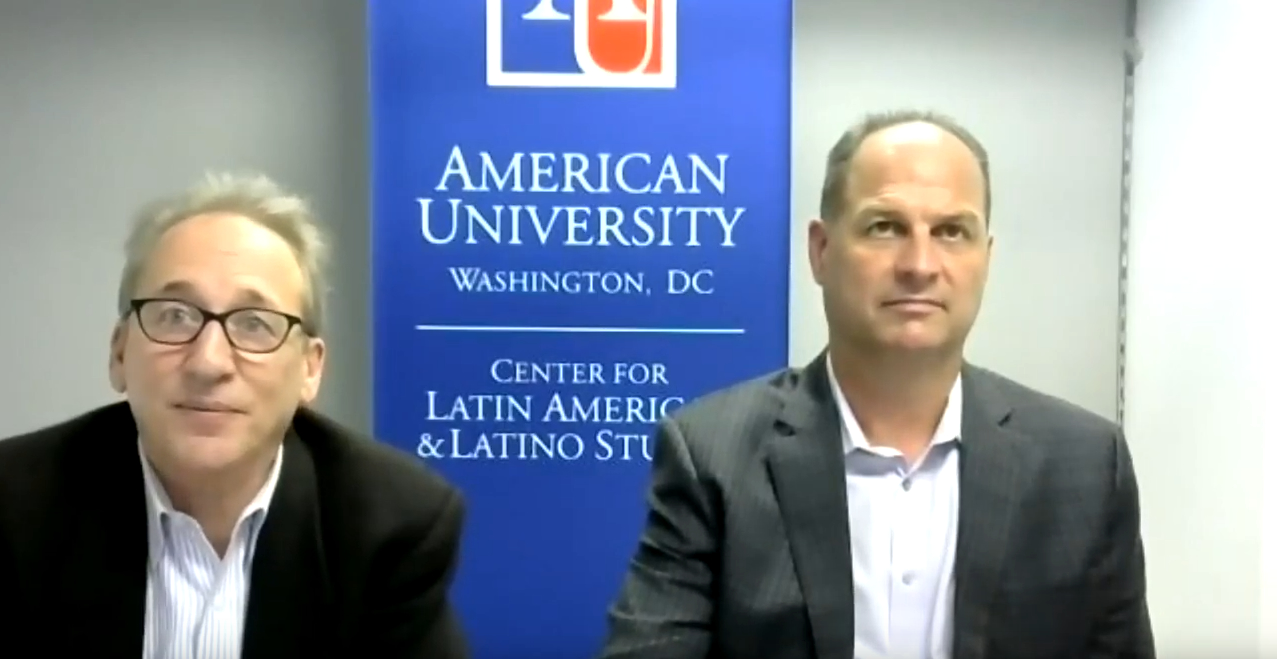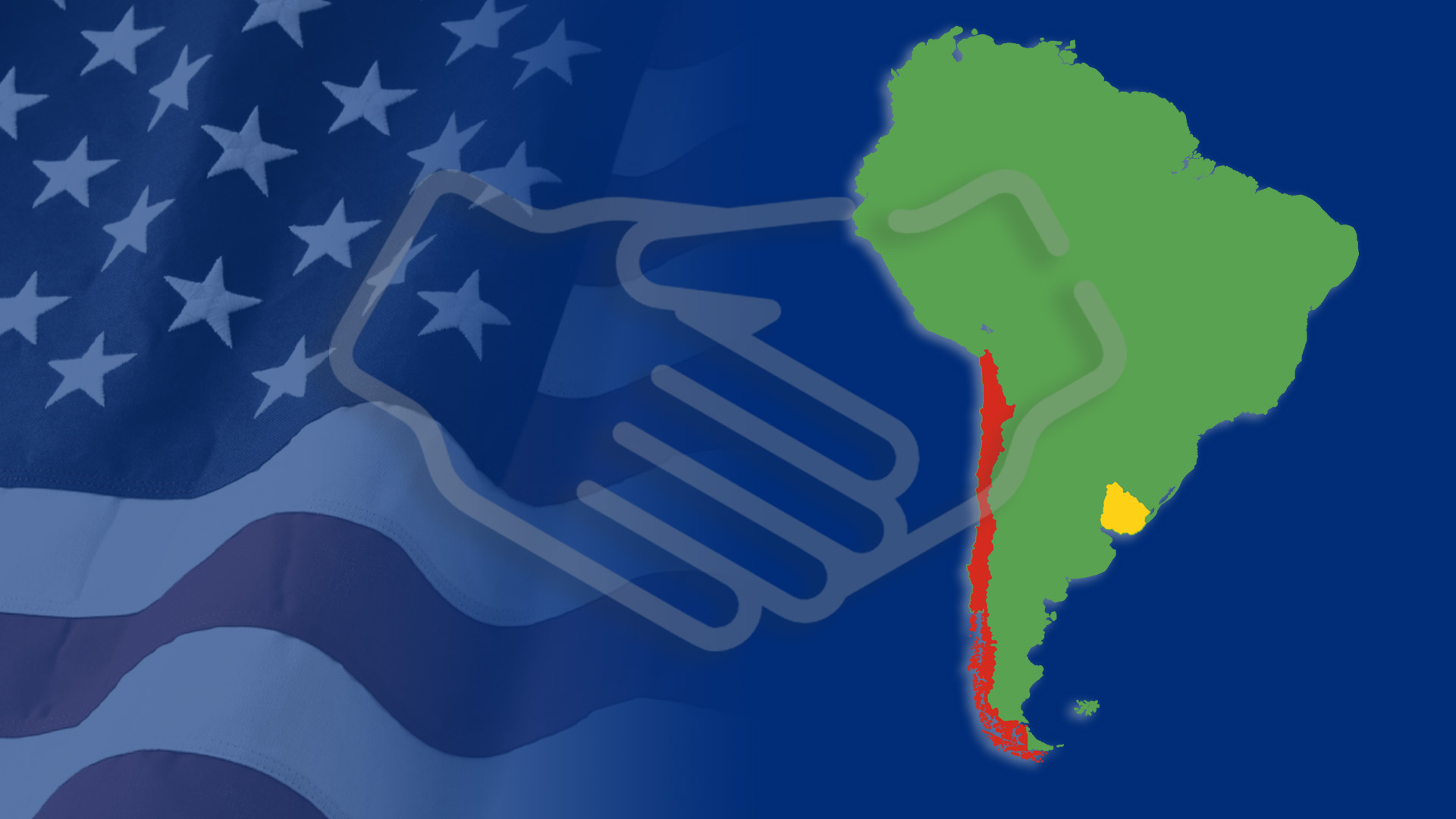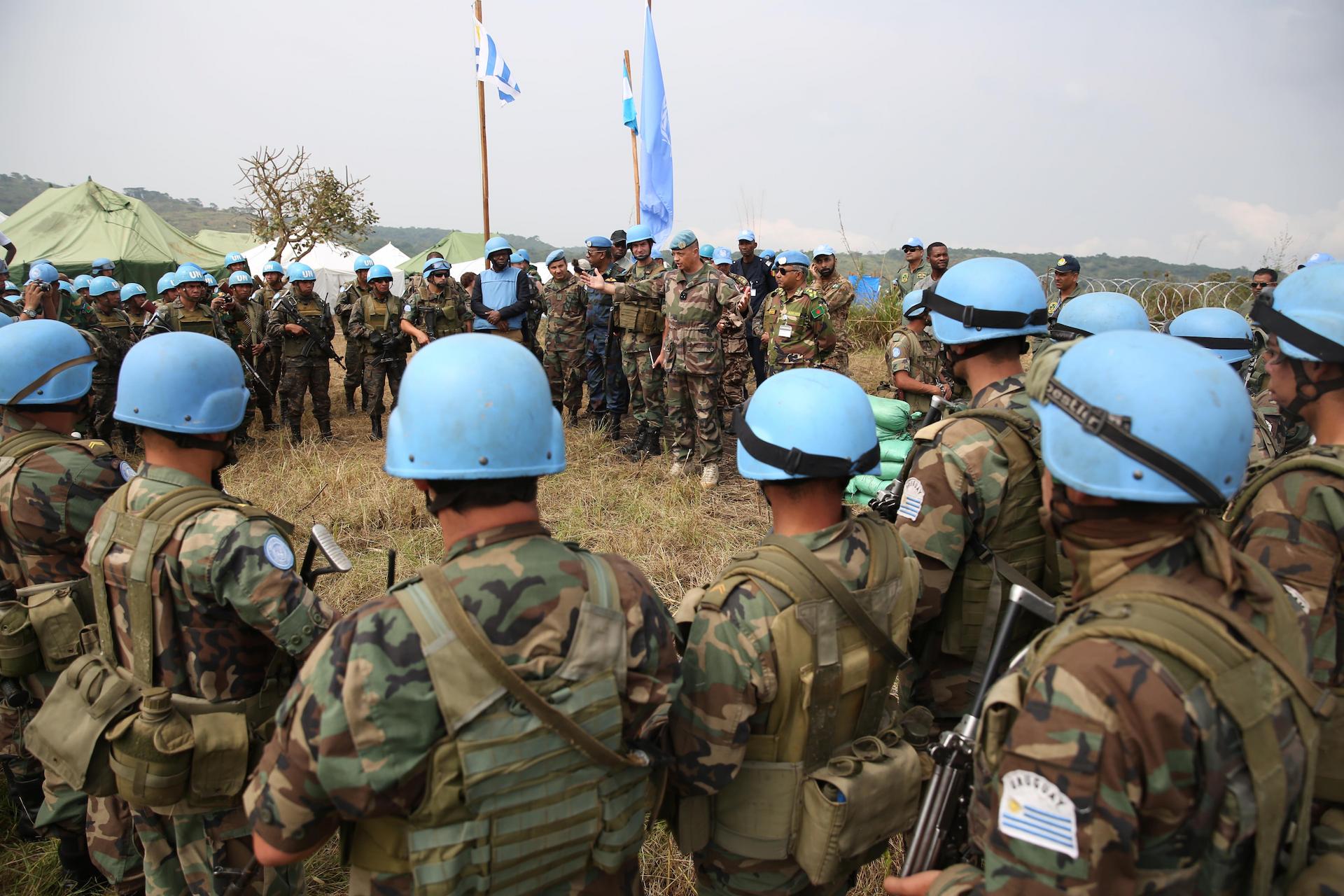U.S. Engagement in Chile
Chile: Infografías en español
- Apoyo de EE. UU. a la Astronomía Chilena
- Exportaciones Chilenas Anuales a EE. UU.
- Porcentaje de Chilenos con una Opinión Positiva de EE. UU.
- Monto y Tipos de Asistencia de COVID de EE. UU. a Chile
- Participantes en Intercambios de Estudiantes entre EE. UU. y Chile
- Inversión Extranjera Directa de EE. UU. en Chile
- Turismo Estadounidense a Chile: Total Anual de Visitantes
- Total Anual de Visas No Inmigrantes Estadounidenses Expedidas: Chile
- Asistencia Exterior Total Anual de EE. UU.: Chile
- Número de Becas Fulbright Otorgadas Anualmente

Una mirada a las relaciones entre Chile y Estados Unidos en el siglo XXI
January 18, 2022 | Event Recording
The Center, the Instituto Milenio Fundamentos de los datos (IMFD), and the Pontificia Universidad Católica de Chile convened a discussion on the state of U.S.-Chilean relations. Speakers presented research findings on the cumulative effects of U.S. engagement in Chile in such areas as environmental conservation, renewable energy, and the long-term impacts of science diplomacy, among other topics. Panelists included: Juan Pablo Luna, Instituto de Ciencia Política y Escuela de Gobierno, Universidad Católica de Chile, Instituto Milenio Fundamentos de los Datos; Nicole Jenne, Instituto de Ciencia Política, Universidad Católica de Chile; Bruna Fonseca de Barros, PhD Cadidate, Instituto de Ciencia Política, Universidad Católica de Chile; Rob Albro, CLALS Research Associate Professor; and Eric Hershberg, CLALS Director.
U.S. Engagement in Uruguay
Uruguay: Infographics in English
- Amount and kinds of U.S. COVID assistance to Uruguay
- Annual Non-Immigrant U.S. Visas Issued
- Annual Uruguayan Exports to the United States
- Annual Uruguayan Information Technology Exports to the U.S.
- Annual U.S. Department of Defense Funding
- Fulbrights Awarded Annually
- Participants in U.S.-Uruguay Student Exchanges
- Percentage of Uruguayans with a Positive View of the U.S.
- U.S. Foreign Direct Investment in Uruguay
- U.S. Tourism to Uruguay: Total Annual Visitors
Uruguay: Infografías en español
- Exportaciones Uruguayas Anuales a EE. UU.
- Exportaciones Uruguayas Anuales de Tecnología Informática a EE. UU.
- Financiamiento Anual del Departamento de Defensa de EE. UU.
- Inversión Extranjera Directa de EE. UU. en Uruguay
- Monto y Tipos de Asistencia de COVID
- Número de Becas Fulbright Otorgadas Anualmente
- Participantes en Intercambios de Estudiantes
- Porcentaje de Uruguayos con una Opinión Positiva de EE. UU.
- Total Anual de Visas No Inmigrantes Estadounidenses Expedidas
- Turismo Estadounidense a Uruguay: Total Anual de Visitantes

Una mirada a las relaciones entre Uruguay y Estados Unidos en el siglo XXI
December 17, 2021 | Event Recording
The Center and Universidad Católica del Uruguay (UCU) convened a discussion on the state of U.S.-Uruguayan relations. Speakers presented research findings on the impacts of bilateral relations across a variety of fields including the beef industry, people-to-people exchanges, and intangible benefits from linkages to the U.S. market. Panelists included: Rob Albro, CLALS Research Associate Professor; Juan Bogliaccini, Political Science Professor, UCU; Carolina Ferreira, Business School Instructor, UCU; Eric Hershberg, CLALS Director; and Soledad Marzoa, Social Sicence Researcher, UCU.













